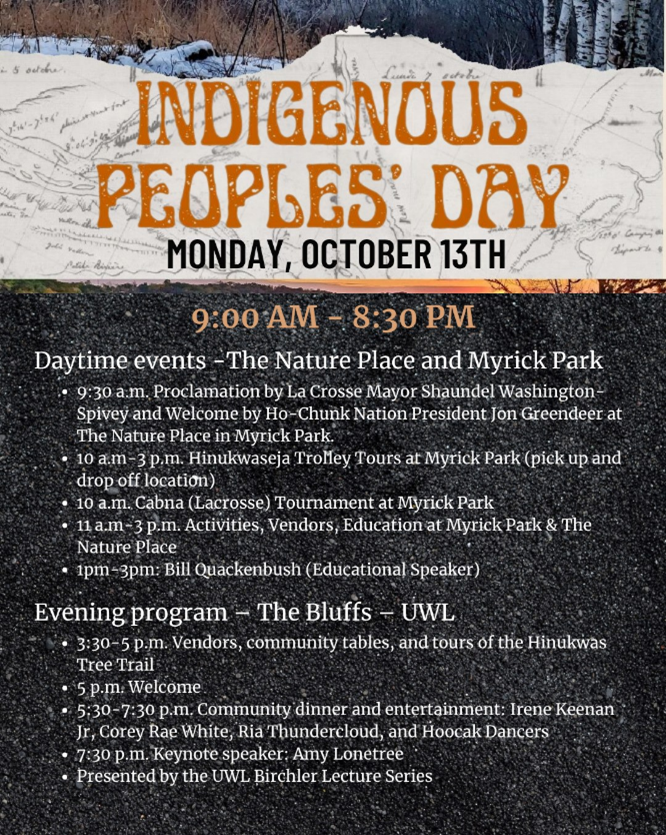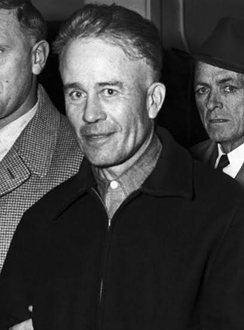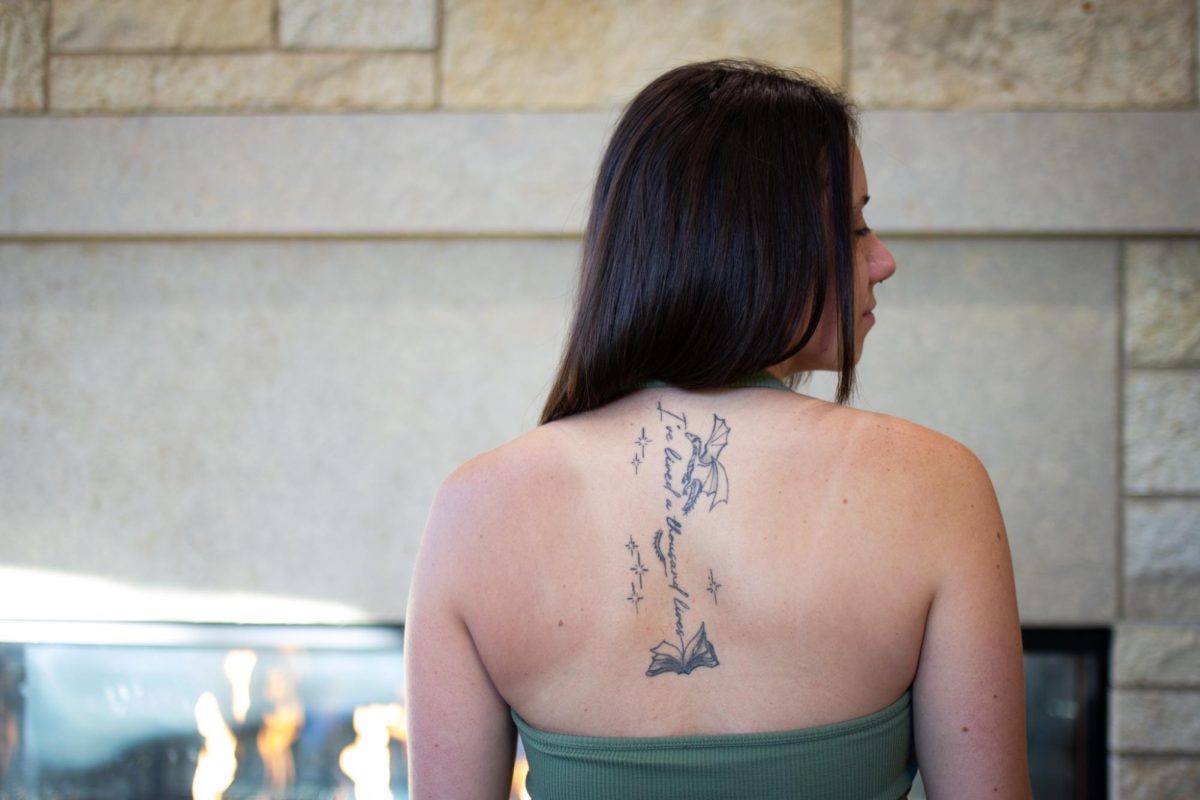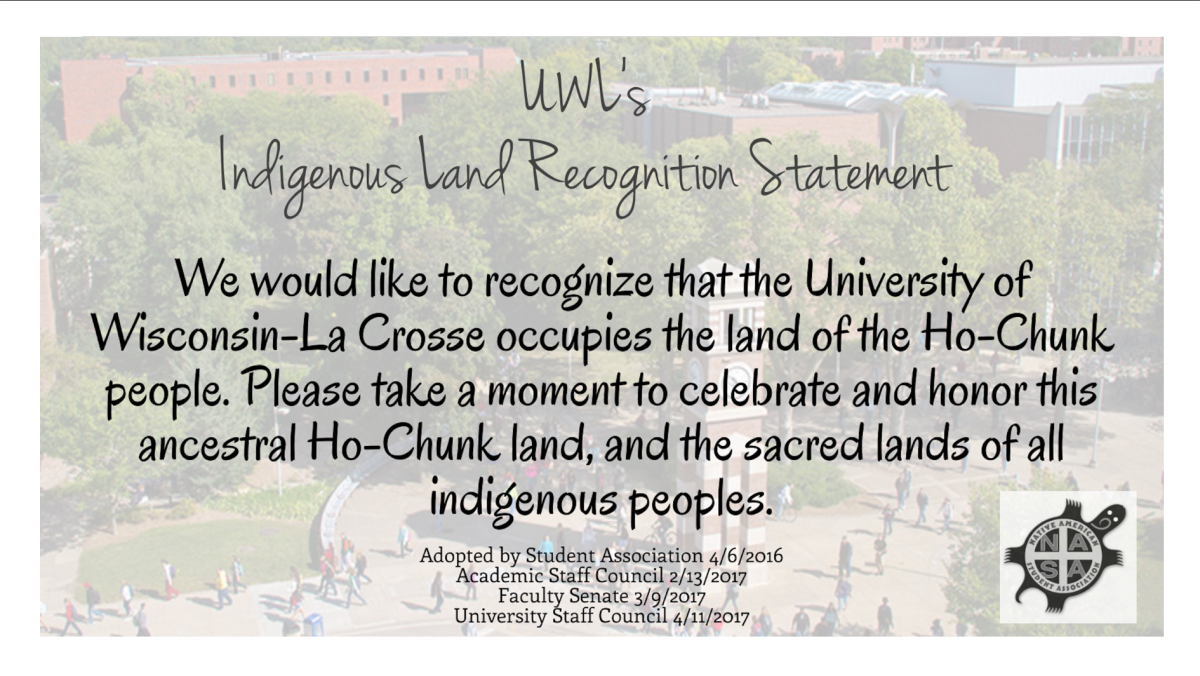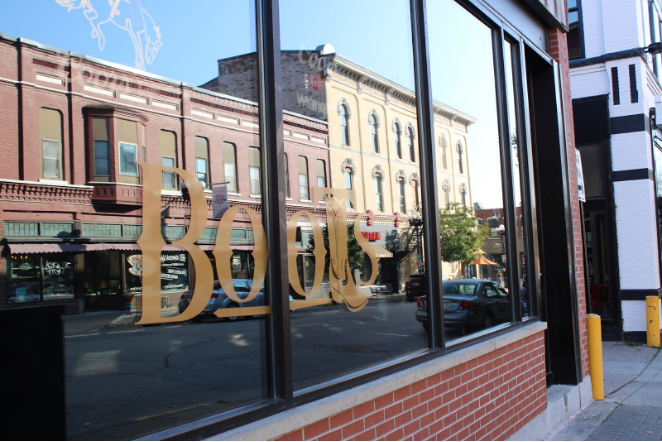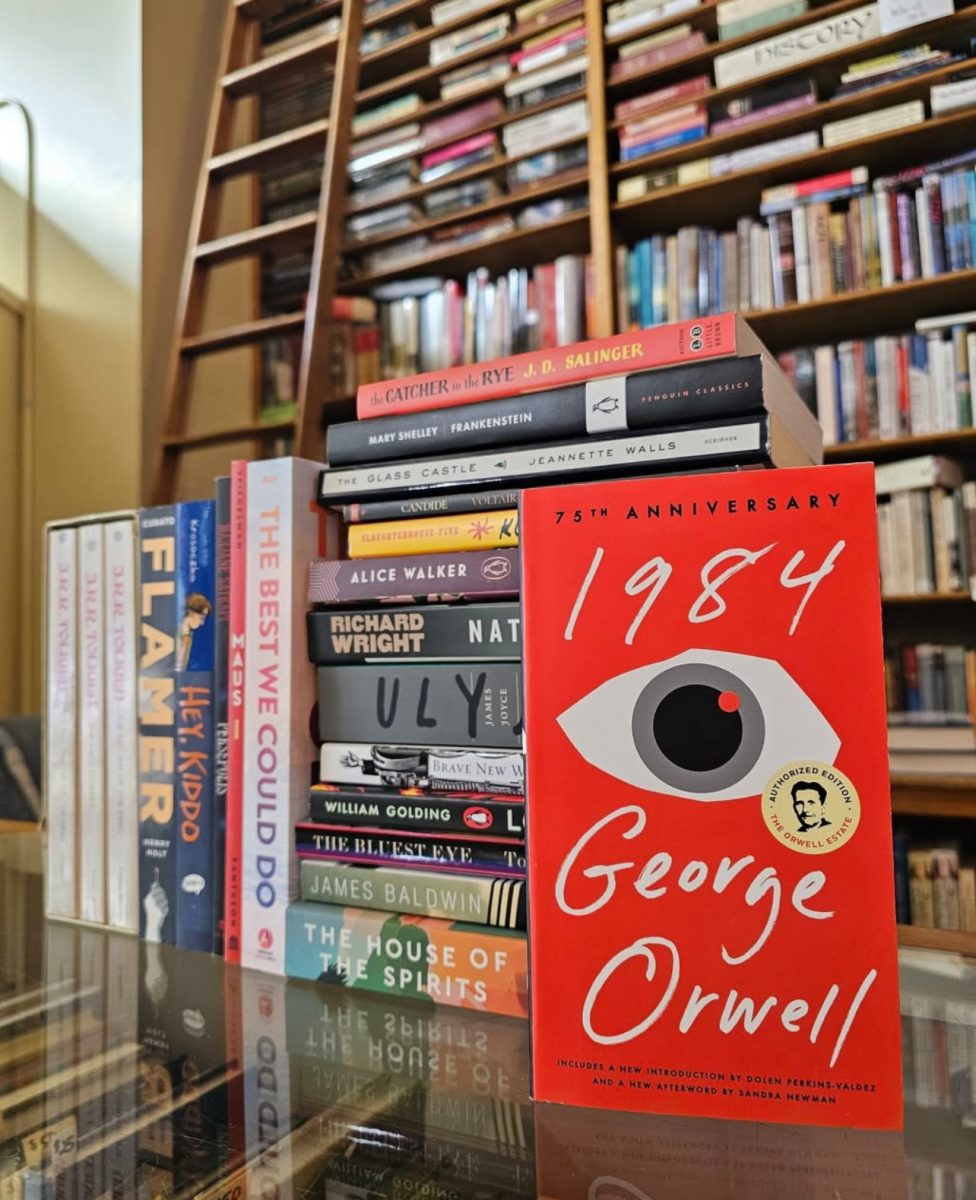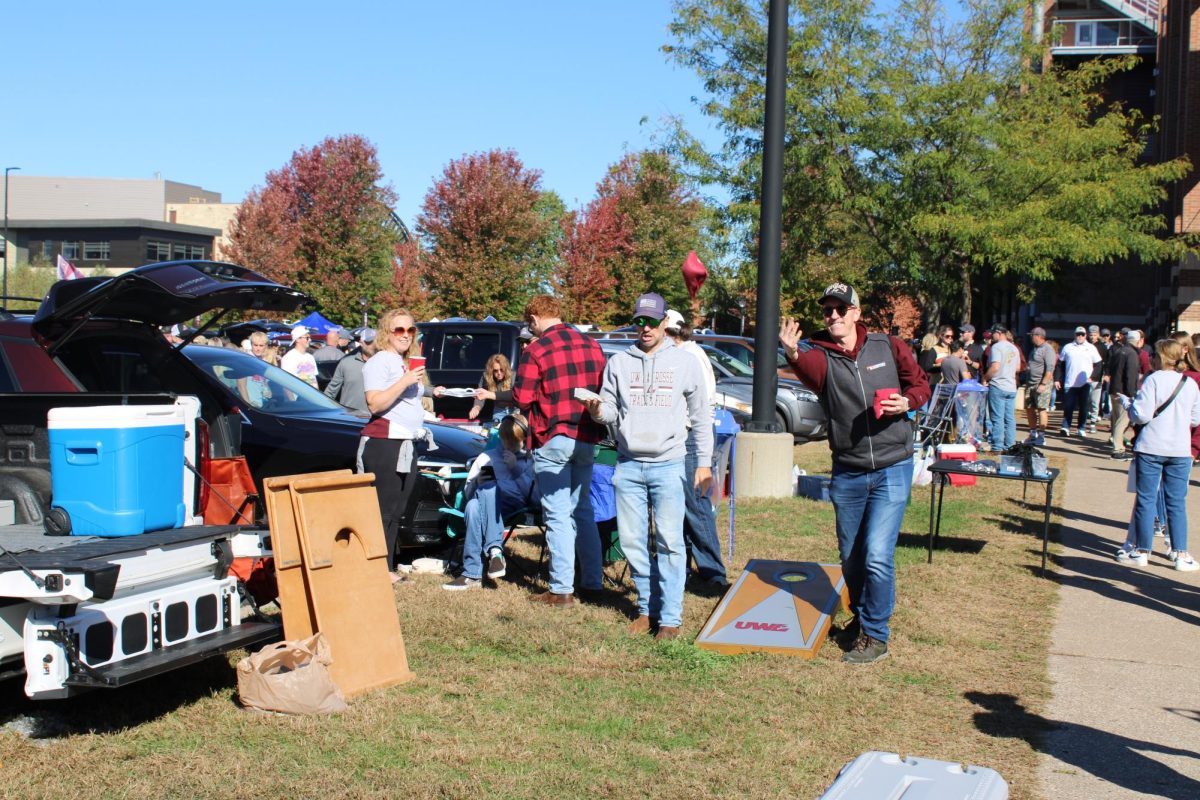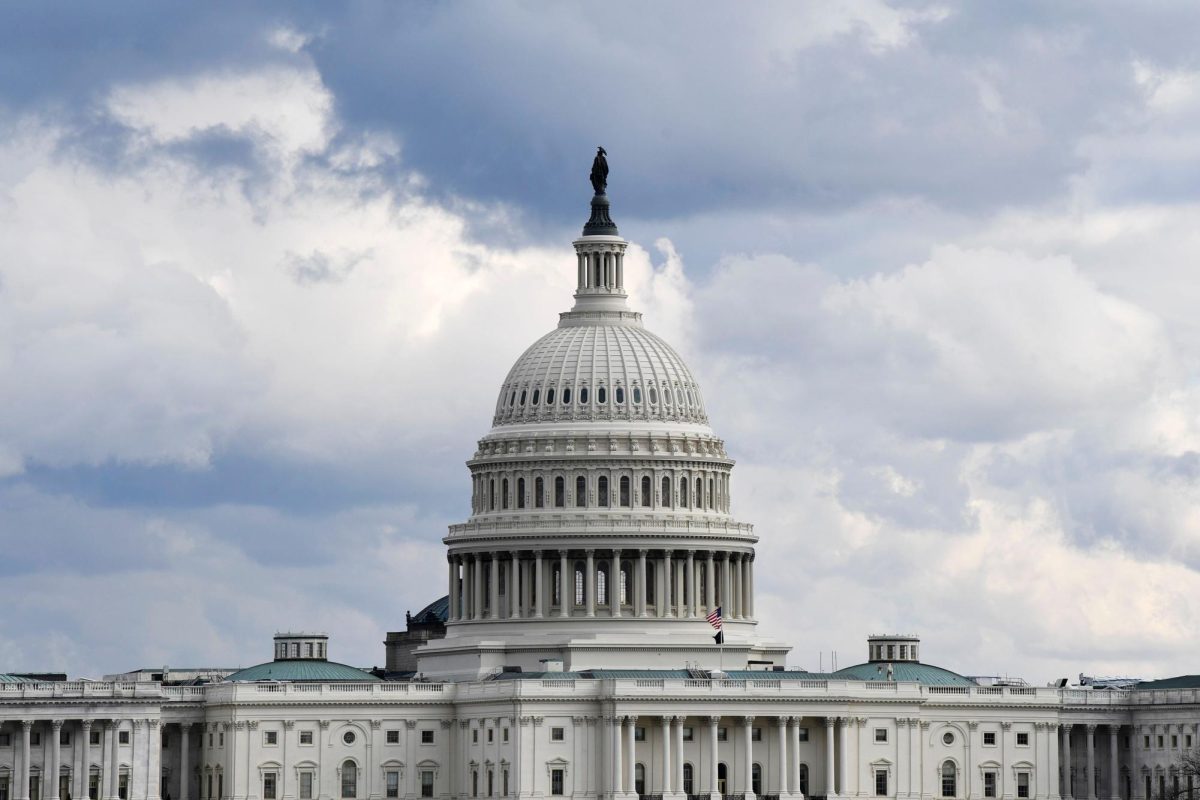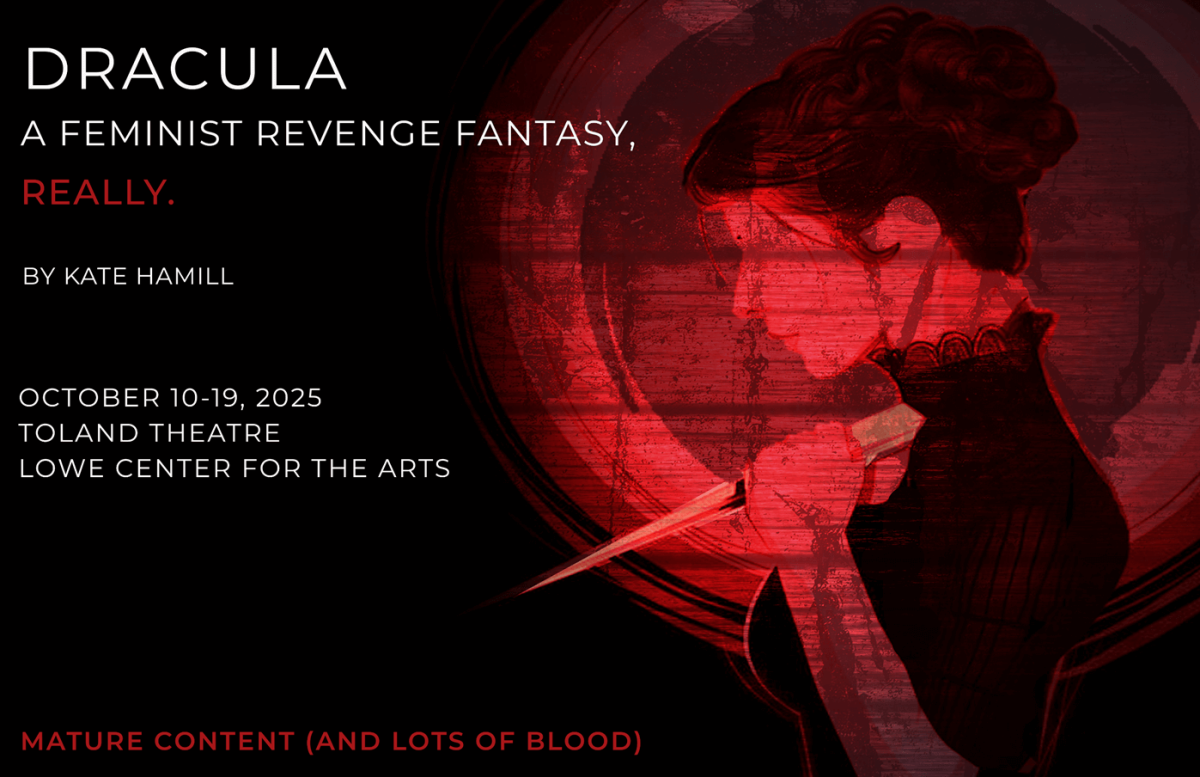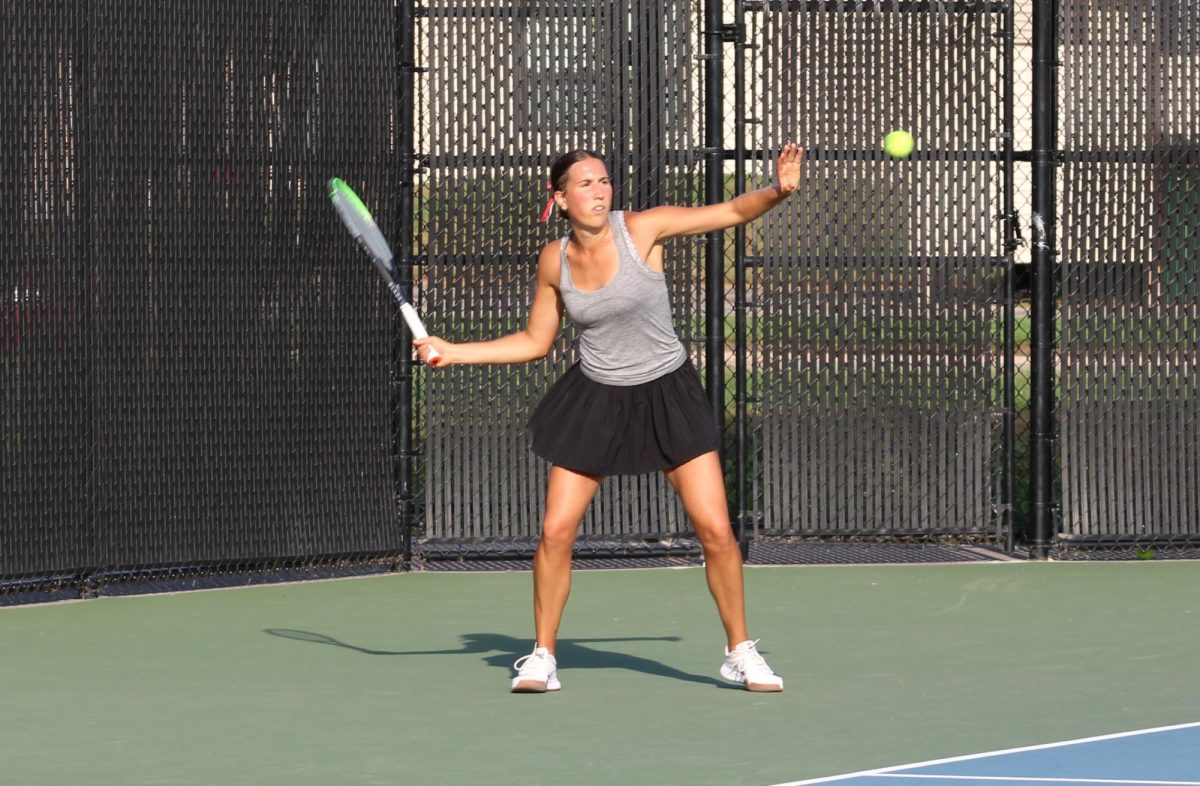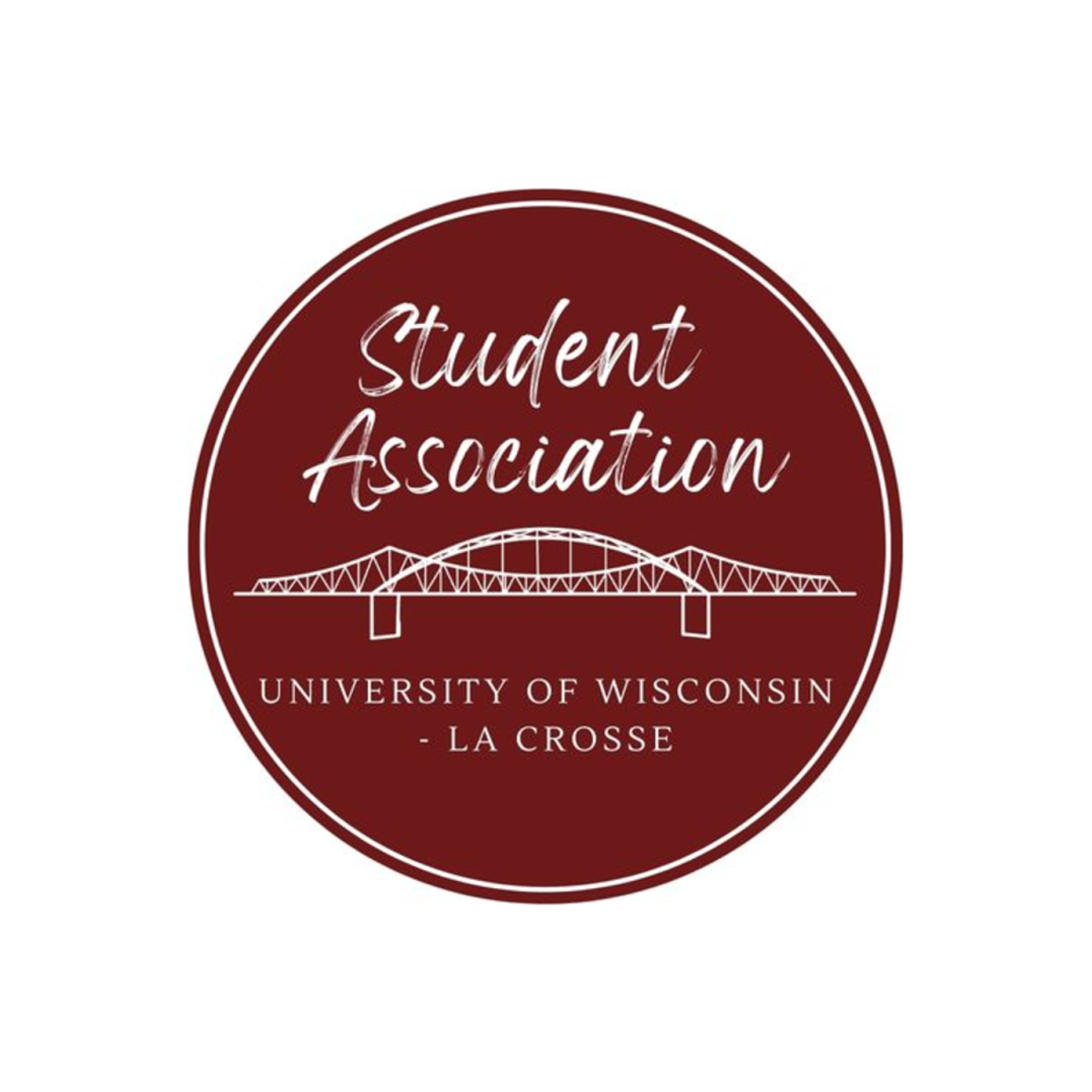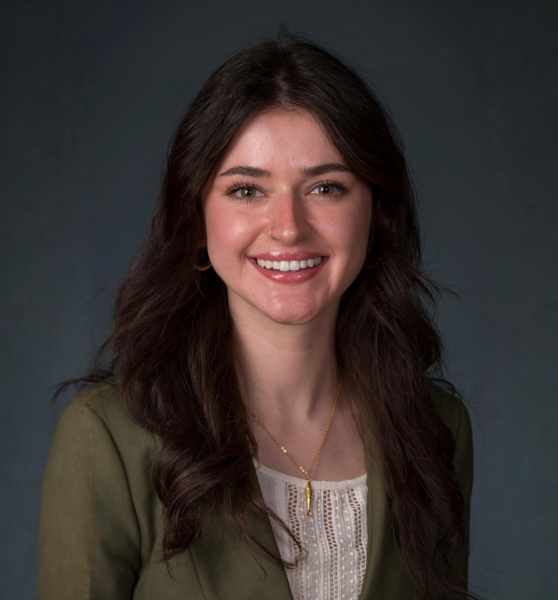On Oct. 13, UWL hosted its first-ever evening celebration of Indigenous Peoples’ Day, highlighting Native history, culture and community resilience through a full day of events.
The celebration began at 9:30 a.m. in Myrick Park at The Nature Place with a proclamation from La Crosse Mayor Shaundel Washington-Spivey, followed by a welcome from Jon Greendeer, president of the Ho-Chunk Nation.
The morning and early afternoon featured several events and activities, including the Hinykwaseja Trolley Tours, which transported participants from Myrick Park to Minnesota, while teaching riders the region’s rich Native history and how the land may have appeared prior to colonization.
The day continued with a caabna (lacrosse) tournament led by Josh Vederberg, honoring the traditional Indigenous game. The afternoon concluded with a presentation from educational speaker Bill Quakenbush at Myrick Park and The Nature Place.
The celebration later moved to The Bluffs Ballroom in UWL’s Student Union for an evening filled with interactive games, cultural performances and food. Attendees took part in traditional Ho-Chunk games such as kaasu, a popular dice game, and the moccasin (or stick) game. A crafting station also gave participants the chance to learn how to make miniature moccasins.
A free community dinner was served, featuring turkey and gravy, mashed potatoes with rutabaga, green beans, fry bread and a dessert of wild rice with blueberries and maple syrup.
Entertainment throughout the evening included a musical performance by Irene Keenan Jr. and a traditional dance performance by the Native Hoocąk Dancers.
A major highlight of the evening was a keynote address from Dr. Amy Lonetree, professor of history at the University of California, Santa Cruz. Specializing in Indigenous history, visual culture and museum studies, Dr. Lonetree presented “Visualizing Native American Survivance: A Photographic History of the Ho-Chunk Nation, 1879–1960.”
Her presentation examined family history, settler colonialism, tourism and Ho-Chunk survivance through two collections of photographs spanning from the late 18th to mid-19th century.
“As we engage with the photographs and the stories that they inspire, we are reminded of the central importance of storytelling as a method,” said Lonetree. “These images are mobilized in the present to ‘re-right and rewrite’ history and reclaim connection to family, place and tribal nation.”
The event received an impressive turnout, including UWL students, community members, eighth-grade students from Longfellow and Logan Middle Schools and Ho-Chunk students from Black River Falls. All of whom came together to attend and celebrate the event as well as enjoy the beautiful night that took the planning committee months to coordinate.
“It’s a day that is important for non-Native people to participate in,” said event coordinator Tracy Littlejohn. “Native people are giving their time, knowledge and skills to be seen and heard by the non-Native world. We wanted this to be a learning opportunity for the entire community.”
When asked what she hoped people took away from the event, Littlejohn added, “That Native people have always been here and are still very present. We have so much to teach, and we also have much to learn from each other. Don’t be afraid to seek that information out.”
For those who missed the Oct. 13 event, there are ongoing opportunities to support Indigenous communities. The documentary “Sugar Cane”, which highlights Indigenous history and experiences, is shown bi-monthly at the Rivoli Theater. Additionally, community members can visit the Ho-Chunk Nation website for more information and resources.
Supporting local Indigenous-owned businesses is another meaningful way to show support to the community. A great place to start is Oh Oh Coffee, a new Indigenous-owned coffee shop located downtown.

